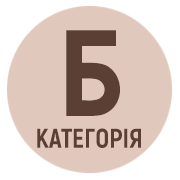PROGRAMME MODES IN THE VIOLIN ART OF MYKOLA LYSENKO
Keywords:
composer, violin works, programme modes, genre, piano accompaniment.Abstract
The given article deals with program violin music written by Mykola Lysenko. The specifics of the figurative contents in his works are revealed through genre definition with its associative circle of expressive means, or its program title. The fact that composer’s violin art hasn’t been the subject of a detailed research makes the article topical. «Fantasy on Two Ukrainian Themes» and transcribed song «Sontse Nyzenko» («The Sun is Down» from the opera «Natalka Poltavka» of Ivan Kotlyarevsky) for violin and piano belong to folk genre program mode. The peculiarity of this mode lies in citation of a folk sample and its authorial arrangement. Concert piece «Elegial Capiccio» and miniature «Hvylyna Rozcharuvannia» («A Moment of Disappointment») are related to impressionable psychological program mode. These pieces are characterized by concentration on psychology of emotions, their versatile disclosure, even in the miniature form. «Elegy» for violin and piano, dedicated to the death anniversary of Taras Shevtchenko represents memorial program mode. In this work M. Lysenko expressed his honour to the poet-prophet. Prominent protest intonations, declamatory elements on one hand and, proximity to folk songs sources on the other hand are present in its melodics. Both «Elegy» and «Sontse Nyzenko» were written for the Children Concert in 1912 in Kyiv and performed in the presence of the author by his son Taras. These two pieces can be regarded as the first examples of children program violin repertoire in the Ukrainian music. Therefore M. Lysenko’s pieces for violin have demonstrated composer’s predisposition to programming. They have typical for romantic style universal and national features of figurative art contents.
References
Блуме Ф. Романтика / Ф. Блуме // Епохи історії музики в окремих викладах : В 2-х ч. [Пер. з нім. та ред.-упор. Ю. Є. Семенов]. Ч. 2. Бароко. Класика. Романтика. Нова музика. – Одеса : Будівельник, 2004. – 240 с.
Загайкевич М. П. Музичний театр / М. П. Загайкевич, О. У. Литвинова // Історія української музики в шести томах. – Т. І : Від найдавніших часів до середини ХІХ ст. [Ред-кол. тому : М. М. Гордійчук (відп. ред.) та ін.]. – К. : Наукова думка, 1989. – С. 99–109.
Зіньків І. Камерно-інструментальна музика / І. Зіньків // Історія української музики . Т. 2 : Друга половина ХІХ ст. [Редкол. тому : Т. П. Булат (відп. ред.) та ін.]. – К. : Наукова думка, 1989. – С. 284–305.
Козаренко О. Вплив поетики Т. Шевченка на формування творчого методу М. Лисенка / О. Козаренко // Записки Наукового тов-ства ім. Шевченка / Т. ССХХХІІ. – Львів, 1996. – С. 112–124.
Корній Л. Історія української музики. Част. третя. ХІХ ст. : Підручник. – Київ- Нью-Йорк : Вид-во М. П. Коць, 2001. – 480 с.
Муха А. Принцип програмності в музиці / А. Муха. – К. : Наукова думка, 1966. – 175 с.
Фрайт О. Особливості втілення принципу програмності в українській фортепіанній музиці : автореф. дис. на здобуття наук. ступеня канд. мистецтв.: спец. 17.00.03 «Музичне мистецтво» / О. Фрайт; ІМФЕ ім. М. Рильського НАНУ. – К., 2000. – 18 с.







